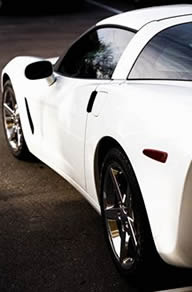
• Featured Specialists •
| Brown's Northside Machine & Gear in Ponderay, ID |
| |
| Westcoast Diesel & Auto in Edmonds, WA |
| |
| UAW Ford Glass Rescue Squad in Nashville, TN |
| |
| Omaha Truck Center Body Shop in Omaha, NE |
| |
| Westside Auto Repair in Leitchfield, KY |
| |
| Crank-N Sleeve Shop in Girard, OH |
| |
| Professional Engine Systems Inc in Youngstown, OH |
| |
| K & K Machining in Elkton, VA |
| |
| White Hawk Machine & Tool in Greenville, TX |
| |
| Diablo Sport Inc in Boca Raton, FL |
| |
| Big Car Wash in Northfield, NJ |
| |
| Glory Days Auto Repair in Bowie, MD |
| |
| Rimrock Trade Center LLC in Grand Junction, CO |
| |
| Holbrook Auto Body CO in Holbrook, MA |
| |
| Tri-State Automotive Inc in Superior, WI |
|
|
Diesel Mechanics and Shops Directory
There are two main differences between a diesel engine and a gasoline engine. A gasoline engine takes in a mixture of gas and air, compresses it and ignites the mixture with a spark. A diesel engine takes in just air, compresses it and then injects fuel into the compressed air. The heat of the compressed air lights the fuel spontaneously. A higher compression ratio of the diesel engine leads to better efficiency. In a fuel injection system the fuel is injected just before the intake stroke at the intake valve. Diesel engines use direct fuel injection and have no spark plugs.
The air it takes in is compressed and the fuel is injected directly into the cylinder where the heat caused by the air compression ignites the fuel. In earlier times this meant that it exploded and expanded very quickly, making a noisy engine. Compared to gasoline-powered vehicles, diesels are more fuel efficient, and they can you much farther on a tank of fuel than their gasoline counterparts. Diesel engines produce more torque, and they tend to be more durable. They don't need an electric ignition system, which reduces their complexity. In the United States and Canada, diesel engines are most commonly found in trucks and buses.
Advanced Search:
|
